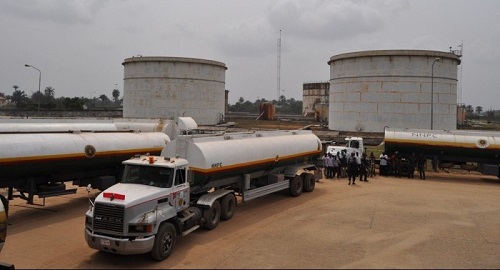This post has already been read 1776 times!
Nigeria’s construction costs are to see a further increase after the government hiked fuel prices, according to built environment professional bodies.
They said, the increase in fuel prices, would burden the construction industry and shatter dreams of achieving low-cost housing in the country.
The bodies include the Nigerian Institute of Town Planners (NITP), Nigerian Institute of Building (NIOB) and Nigerian Institute of Estate Surveyors and Valuers (NIESV).
According to them, suggestion that the increase was for appropriate pricing based on market forces, was weak and unacceptable.
They also argued that the increase in electricity tariff and fuel price clearly violates Nigeria’s obligations under the International Covenant on Economic, Social and Cultural Rights, to which the country is a state party.
Under the obligations, parties are not to take ‘deliberately retrogressive measures’ unless there are no alternative options and full consideration has been given to ensure that the measures are necessary and proportionate.
National President, Nigerian Institute of Building, Kunle Awobodu, said, NIOB finds it necessary to explain the unintended effects of such increases on the construction industry that produces the nation’s housing and other infrastructure stock.
According to him, the construction industry engages a lot of actors, including professionals, artisans, and business organisations such as contractors, materials manufacturers, equipment manufacturers or leasing organisations.
Many of the organisations, he said, are small medium enterprises that remain the engine room of growth in national economies, hence the use of the construction industry to grow national economies cannot be overemphasised.
To the NIOB boss, what the nation needs at this time is ability to look inwards in line with the government espoused policy pronouncements and executive orders on local content.
“Bringing to fore the NIOB past market survey, a 50kg bag of cement rose from N1,600 to N2,000 and steel reinforcement bars ( locally manufactured) from N135,000 to N140,000 due to hike in fuel prices from N65 to N120 per Litre in 2012. The increase in fuel price from N120 to N145 in 2016 resulted in the rise of cement price to N2,300 per 50kg bag and steel bars to N180,000 per tonne.
“Just before this current upward review of fuel price to about N151.56, a 50kg bag of cement sold for N2,600 while steel bars was N230,000 per tonne. “Sadly, these two prominent building materials are being manufactured locally, thereby questioning the rationale behind backward integration and local content policies”, he noted.
“It is our considered view that reversing the recent increases will do the critical masses and Nigeria’s economy and, especially the construction industry good.
“Increased construction activities will benefit both the government and the citizens”, he said.
Similarly, the National President, Nigerian Institute of Town Planners (NITP), Mr. Lekwa Ezutah said, with the deregulation of the petroleum industry sector and subsequent increase in the price of fuel cost of transportation will increase, the cost of construction components will also increase.
Transportation, he said, is the life wire of any economy because it provides the means for movement of people and goods from one point to the other. He stressed that any factor that influences cost of transportation is bound to affect other sectors of the economy.
“This has a lot of negative consequences on the dependent population , increase in crime rate among others.
“Deregulation and subsequent hike in price of fuel hurts the economy. On the other hand maintaining the subsidy regime is not sustainable. I think the Government went for the option that is in our long term interest”, he stated.He, however, advised the government to ensure that the benefits coming from subsidy removal trickles down to the masses.
NIESV President, Sir Emmanuel Wike said, the hike in price of fuel will impacts negatively on the weight of construction since the machines and equipment use fuel or need gas for their operations.
Secondly, Wike said the N15 increase per litre on the price of fuel will also increase the cost on transportation for both workers and professionals.
He said there will be increase in service charge in the sense that for those who manage multiple tenants occupied property, they need to increase their charges to cushion the effect of the hike or cover the deficit incurred during the proceeding year.
“For any country to have increase in GDP, it must have increase in the real estate investments. “But what we are doing in Nigeria is like discouraging investment in the real estate sector because all these things at the end of the day will increase the cost of investment in the real estate and that is a way of discouraging people from investing in the sector.
“ If the rate of construction, where you are supposed to have a project that will cost you N100 million, you have done your budget and given your bill of quantities with your professional fees and approached the bank for facility after making your equity contribution of 30 percent of 40 per cent, what it means is that once the increment has occurred in the cost of construction, it is going to affect the facility and thereby causing delays as he will need to go back to the bank to be able to meet up with the construction and the timing.
“Secondly, the duration of the project would have to change because of the hike in prices”, he added.



